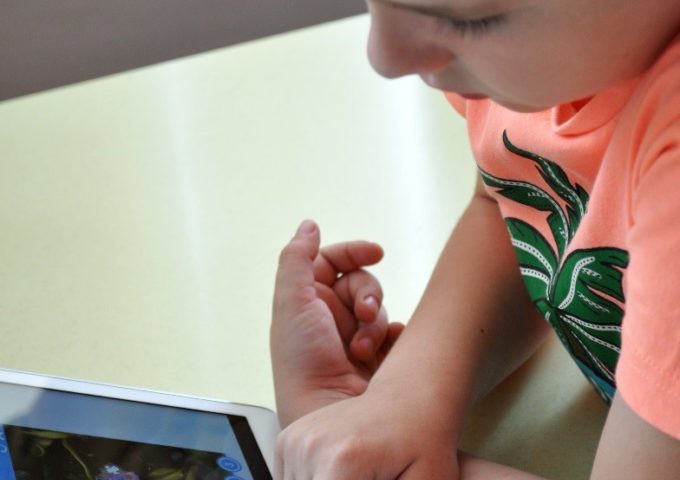
Is 5G or WiFi 6 Better for Your Wireless Network?
October 22, 2019
Hit the Simple Button to Solve Complex Security Problems
October 24, 2019How AI is helping children overcome their speech disabilities

In Central and Eastern Europe and Central Asia, there are over 5 million children with some form of disability. With the right support, many of these can thrive in mainstream education. Unfortunately, that isn’t always available. As a result, up to 75 percent of these children are excluded from quality education.
The situation is made even more difficult when resources are stretched to begin with. In Romania, a country which has the second highest teacher-to-student ratio in Europe, it can be difficult for children with disabilities to get the specific support they need to thrive, whether that’s in or out of the classroom. For instance, when it comes to speech disabilities – which affect over 10 percent of all children in the country – many children are left waiting to access speech therapy, which can leave them frustrated, anxious and isolated.
Conscious of this challenge holding back students in classrooms across the country, speech therapist Daniela Mihaescu always believed there had to be a better way to help the 400,000 Romanian children with speech disabilities. During her clinic sessions, children and parents alike would often ask if there were any games that they could play on her phone to support their speech therapy. Daniela realised that “digital children need digital resources”. In 2015, Daniela joined Romanian e-learning company Ascendia to help them design engaging, educational digital content while still working part-time as a speech therapist. With her experience in the field highlighting the need for digital solutions, Dana approached Ascendia’s co-founders, Alex and Cosmin Malureanu, with an idea: what if technology could help bridge the gap in speech therapy support?
Our goal is to get teachers comfortable with new technologies, so they can prepare the next generation for the jobs of the future, not those of the past
The idea immediately appealed to brothers Alex and Cosmin, who founded Ascendia after seeing how their mother, a teacher, struggled to meet all her students’ needs with limited resources. What started as a personal passion project has flourished in the last decade to become a multinational company operated by 33 staff in nine countries. So far, Ascendia has created over 1,100 hours of educational content supporting students, parents and teachers alike. As Cosmin Malureanu puts it, “our goal is to get teachers comfortable with new technologies, so they can prepare the next generation for the jobs of the future, not those of the past.”
With the support of Alex and Cosmin, Daniela and her team set about creating a solution to help children working to overcome their speech disabilities – a solution now known as Timlogo.
Timlogo is an interactive, digital speech development tool that uses artificial intelligence (AI) to analyse children’s pronunciation and diagnose their specific speech issues, and then recommend the most relevant course of exercises to correct these. The tool’s offering also learns and adapts over time, meaning that as children improve, the suggested exercises evolve too.
Most importantly, Timlogo is designed to be fun, integrating games, characters and stories that spark a child’s imagination and hold their attention. Teacher and speech therapist Dragan Georgeta explains: “Many children become anxious when they struggle to pronounce certain sounds. But in Timlogo, they are introduced to cartoon characters who tell a story around each sound and encourage them to join in and attempt to pronounce it.” This gamification creates a feeling of inclusion and boosts children’s confidence, something that is key when it comes to overcoming speech difficulties.
This gamification creates a feeling of inclusion and boosts children’s confidence

Inclusion isn’t just about the children. From the outset, Ascendia worked to bring speech therapists into the process of designing and deploying Timlogo. Co-founder Alex Malureanu highlights how “Timlogo is designed to help, not hinder, speech therapy professionals. We always knew it needed be a tool that worked for them.”
Since launching Timlogo in 2018, Ascendia has on-boarded 690 trained therapists to promote the tool to their peers. Their ambassadors program also included eight respected specialists in speech pathology, who train their peers to encourage uptake of the technology. One of these is Daniela herself, who describes her role as helping other speech therapists “understand everything they need to know about the platform and put it into practice with their patients”.
This peer-to-peer learning approach has the added benefit of helping Ascendia collect direct feedback from those using the platform and modify it to meet their needs. Ever since Daniela first envisioned it, Timlogo has been a platform for therapists, by therapists. And it shows. Timlogo is now used by over 510 speech therapists and in 14 schools nationwide.
Timlogo has already made a significant positive impact on many children’s lives. But it has the potential to help many, many more. To help achieve this goal, Ascendia has been awarded a grant through Microsoft’s AI for Accessibility program, which rewards projects and organizations working to harness the power of AI to make the world more inclusive. Using their Microsoft Azure grant prize credits, Ascendia aims to accelerate the impact of the Timlogo platform beyond Romania’s borders. Within the next few years, Ascendia hopes to make Timlogo available in Poland, Moldova, Hungary, Bulgaria, and Serbia.
Innovative solutions like Timlogo are needed across the continent. It’s estimated that as many as one in five children in the EU have some form of hearing, vision or language disability. Technology can play a vital role in overcoming geographical and financial barriers while helping healthcare systems make the most of limited resources. With people like Dana, Alex and Cosmin at the helm, the isolation and frustration felt by too many children across Europe can become a thing of the past.
The post How AI is helping children overcome their speech disabilities appeared first on Microsoft Malaysia News Center.

